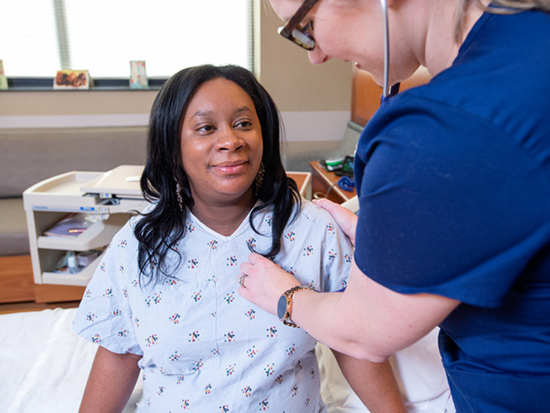According to the experts at the UAB Cardiovascular Institute and UAB St. Vincent’s, women should actively protect themselves against heart disease, regardless of their age.
According to the experts at UAB Cardiovascular Institute and UAB St. Vincent’s, women should actively protect themselves against heart disease, regardless of their age.
Photography: Lexi CoonHeart disease remains the foremost cause of death among women in the United States, as reported by the American Heart Association. It is important to note that heart disease can manifest differently in women compared to men, and many women may underestimate their symptoms or postpone seeking medical care. As age progresses, particularly post-menopause, the likelihood of heart attacks and strokes in women escalates. Alarmingly, only about 50% of women acknowledge heart disease as a significant health risk.
Steps to Safeguard Heart Health
“Preventing heart disease can begin with simple adjustments that make a significant impact,” stated Gretchen Wells, M.D., Ph.D., director of the UAB Medicine Women’s Heart Health Program. “Our most insightful suggestions are straightforward and can be seamlessly integrated into daily life.”
Wells recommends the following:
- Adopting a heart-healthy diet
- Engaging in regular exercise
- Maintaining a healthy weight
- Quitting smoking
- Monitoring cholesterol, blood glucose, and blood pressure levels
- Managing stress appropriately
- Limiting alcohol consumption
- Ensuring adequate sleep
For women looking to improve their heart health, Wells encourages starting with small, manageable changes. For example, instead of committing to a daily 30-minute walk or an extensive dietary overhaul, they might begin with a 5 to 10-minute walk or incorporating a healthy side dish during meals. As these habits become second nature, gradually increase the efforts.
“Incorporating the whole family into these healthy habits can also make a difference,” Wells added. “Food and exercise can serve as medicine for everyone, and families can discover resources for maintaining a nutritious diet, creating exciting and healthy meals together.”
Recognizing Heart Attack Symptoms
Women may often experience atypical symptoms that are not commonly linked to heart attacks, such as anxiety, stomach upset, or unusual fatigue. If any strange symptoms occur, Wells advises that they warrant further evaluation.
Common signs of a heart attack may include:
- Uncomfortable pressure or pain in the chest
- Shortness of breath
- Unexplained pain in the shoulder, back, arm, or jaw
- Nausea or vomiting without a clear cause
- Excessive sweating
- Lightheadedness or fainting
- Irregular heart palpitations
If anyone experiences any of these symptoms, it is vital to call 911 and seek immediate medical assistance.
Importance of Seeking Medical Attention
“We often see women postponing treatment because they feel overwhelmed with work, family obligations, and caregiving,” noted Monica Hunter, M.D., a cardiologist at UAB St. Vincent’s. “Some patients doubt their symptoms are serious and worry about being perceived as anxious or overreacting.”
Hunter emphasizes the importance of seeking medical help if something feels amiss. “I would much prefer to assess them in an emergency room or clinic to ensure their safety than to miss a critical opportunity that could prevent a heart attack or stroke,” she stated.
Women who have experienced certain conditions during pregnancy, such as gestational diabetes, gestational hypertension, or preeclampsia, may face a heightened risk of heart disease later in life. It is essential for them to inform their healthcare providers and ensure routine checks for blood sugar, cholesterol, and blood pressure.
Regular appointments with healthcare professionals are advisable for discussing risk factors, setting fitness and dietary goals, organizing blood tests, and refilling prescriptions. Providers can also offer resources for smoking cessation and strategies to lower heart disease risk factors.
The UAB Women’s Heart Health Program is tailored to assist patients in lowering their heart disease and stroke risk by delivering medical care that addresses women’s unique needs. This comprehensive program enlists a proficient team of cardiac specialists to evaluate and manage women’s heart health, tackling conditions like coronary microvascular disease, heart failure, spontaneous coronary artery dissection, and cardiovascular issues related to pregnancy.
The cardiologists and healthcare teams at UAB St. Vincent’s develop personalized care plans catering to each patient’s heart and vascular health. Their cardiology services encompass everything from screenings and preventive care to complex cardiovascular procedures and surgeries.


